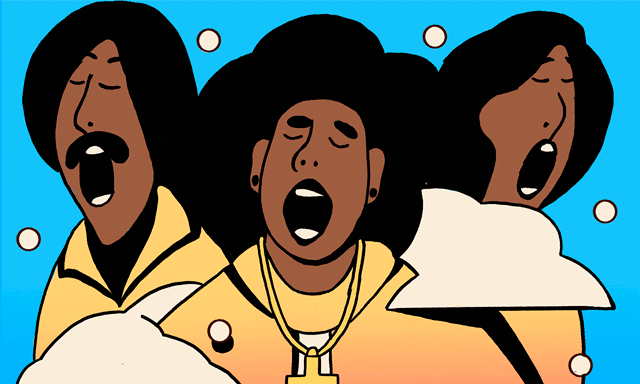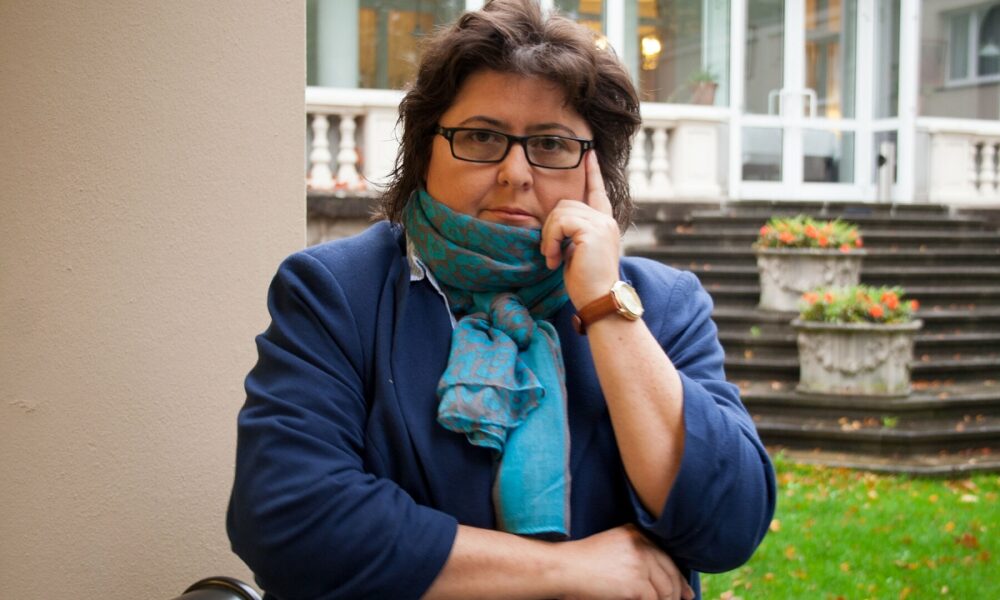The church choir is the maternity room of pop music

When hip hop still had to be born, gospel singers already raped biblical stories. Long before metal guitarists shattered notes on the neck of the electric guitar, Sister Rosetta Tharpe laid the foundation in the church. Those who do not believe it listen to ‘The Preacher and the Bear’ by The Jubalaires from 1944 and the guitar solo on Tharpe’s ‘Up Above My Head’.
Anyone who has still not heard the gospel explains his ear at Aretha Franklin, Otis Redding, Marvin Gaye or Beyoncé. All trained in the church. Because that is the conservatory of pop music, the gospel choir is the maternity room of the charts.
Where does it come from?
When it comes to the enormous influence of gospel on pop music, we are mainly talking about ‘Black Gospel’, the music from the predominantly African-American churches. History is very short: in the time of slavery, African spirituality in America was forbidden, including the music that was connected to it. But when the abolition of slavery came closer in the 19th century, the free black Americans became interesting souls to win. Settlements came from the stiff English church in which a looser, musical way of worship was allowed.
At those churches, a personal bond between the believer and the Holy Spirit was central, which could be reached through music, among other things. Biblical texts fused in hopeful spirituals with the African-American way of singing.
How does it sound?
In the Bible, Gospel stands for the happy message that needs to be distributed. So it is jubilation music: music that leads to ecstasy, sometimes even trance.
Of course it’s all about big voices, but at least as important is the choir that the velanger answers. This question-answer-structure is the way to turn worshipers into musicians.
Those who prefer not to listen to gospel still hear it in Blues, Soul, R&B and Rock. At the beginning of the 20th century you could hear ‘devilish’ blues music in southern America on Saturday evening that actually only differed textually from the ‘holy’ music of Sunday morning and often performed by the same musicians. Rock ‘n’ roll came from that.
That’s how it went with Soul. Gospel group The Soul Stirrers had a hit in 1956 in which they sang « My Lord He’s So Wonderful« . At the same time, Dale Cook had a hit in which he on the same melody »My Girl She’s So LoveAx« Sang. Dale Cook was the pseudonym of Soul Stirrer singer Sam Cooke, who made the switch to secular music.
https://www.youtube.com/watch?v=JEBNAXFHFQ
Who should I listen to?
Start at Mahalia Jackson. When pop music became a political strength in the civil rights movement of the fifties and sixties, she was the favorite singer of Pastor Martin Luther King.
Gospel soul singers such as Aretha Franklin and Mavis Staples came from the same movement. Later they were singers such as D’Angelo and Whitney Houston who brought church and pop together.
The currently best -selling gospel artists of America are not always known here, such as Kirk Franklin, who gives an urban sound to church music. Of course you prefer to hear it live, for example in the Netherlands from Shirma Rouse or it! Gospel Choir.
In the core you hear gospel everywhere. For those who still don’t believe that: the biggest hit ever in the Dutch Top 40 was ‘Happy’ by Pharrell Williams. That is pure jubilant clapping goose. Taste to the sum: the number 1 hit of today is ‘Ordinary’ by Alex Warren, again pure secular gospel.
Can the music professor an amen?
Amen.
https://www.youtube.com/watch?v=XNZKZ7LJRUC

:format(jpeg):fill(f8f8f8,true)/s3/static.nrc.nl/taxonomy/bf9b707-commentaar-itemafbeelding-2024.png)
/s3/static.nrc.nl/images/gn4/data131663875-35367c.jpg)
/s3/static.nrc.nl/wp-content/uploads/2025/05/12011045/ANP-356835337.jpg)




